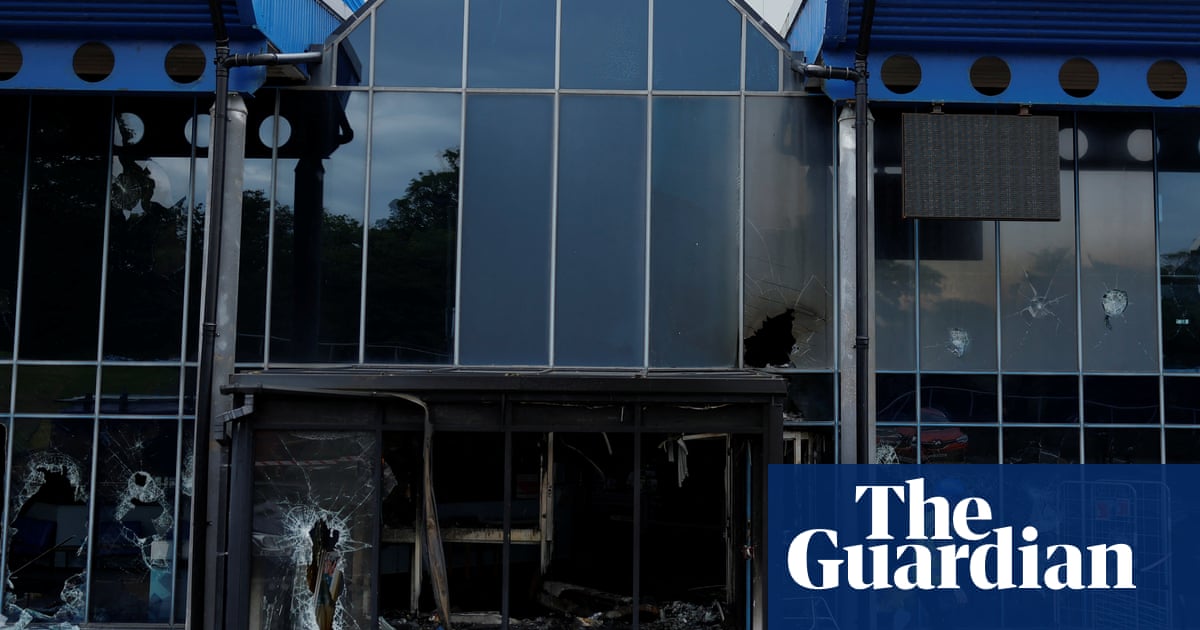The recent events in Northern Ireland, including the refusal of a minister to resign amid rising violence, highlight a complex interplay of political tensions and social unrest. This article presents a situation that raises questions about leadership accountability and public safety, particularly in the context of immigration-related tensions.
Political Accountability and Leadership Crisis
The refusal of Gordon Lyons, the DUP communities minister, to resign in the face of criticism signifies a fracture in political unity. His comments on social media, which seemed to downplay the severity of the situation, have been met with backlash from opposition parties, indicating a growing demand for accountability among political leaders. The expectation for leaders to demonstrate decisiveness and responsibility in times of crisis is a fundamental aspect of governance, and Lyons' stance may suggest either a lack of awareness of public sentiment or a strategic choice to maintain his position.
Social Tensions and Public Safety
The violent incidents, particularly the attack on the leisure center in Larne, reflect deeper societal issues, including racism and community cohesion. The condemnation from both Sinn Féin and the DUP leaders indicates an acknowledgment of the racial undertones of the violence. The emphasis on peaceful protest contrasts sharply with the violent actions witnessed, highlighting the challenge of addressing grievances without resorting to aggression. This juxtaposition serves to frame the narrative around the need for constructive dialogue rather than conflict.
Media Representation and Public Perception
The framing of the article suggests an urgency to inform the public about the realities of the situation while also shaping perceptions of political leaders. By highlighting the criticisms directed at Lyons and the broader implications of the violent protests, the article may aim to foster a sense of urgency and concern among readers. It reflects the media's role in not only reporting events but also influencing public opinion regarding political figures and their responsibilities.
Potential Consequences for Society and Politics
These events could have significant ramifications for Northern Ireland's political landscape, potentially leading to increased polarization among communities. The calls for Lyons to resign and the ongoing violence may lead to a reevaluation of leadership within the DUP and the broader political context. If public trust in leaders continues to erode, this could result in greater instability and a lack of effective governance.
Community Support and Political Alignments
Support for this news is likely to resonate more with communities concerned about public safety and accountability, particularly those who oppose the actions taken by political leaders in response to the riots. The article seems to target readers who seek transparency and effective leadership in addressing community issues, particularly concerning immigration and social cohesion.
In terms of economic or market implications, this news might not have a direct impact on stock markets, but it could influence investor sentiment regarding Northern Ireland's political stability, especially for businesses reliant on community support and public safety.
The global power balance is indirectly relevant, as political instability in regions like Northern Ireland can affect perceptions of governance and conflict resolution in other similar contexts. The situation mirrors broader themes of immigration, nationalism, and community relations that are prevalent in various geopolitical discussions today.
While there is no explicit indication of AI involvement in the writing of this article, the structured presentation and focus on key statements suggest a level of editorial guidance that could be influenced by data analysis tools, although it is more likely the product of human journalism aimed at clarity and engagement.
The article reflects a considerable level of realism, as it reports on actual events and the responses of various political figures. The motivations behind the discussions and criticisms presented indicate an effort to hold leaders accountable while engaging the public in a critical dialogue about safety and community values.
Overall, the article serves to inform and provoke thought about the responsibilities of political leaders in the face of societal unrest, emphasizing the importance of accountability and effective leadership during crises.
